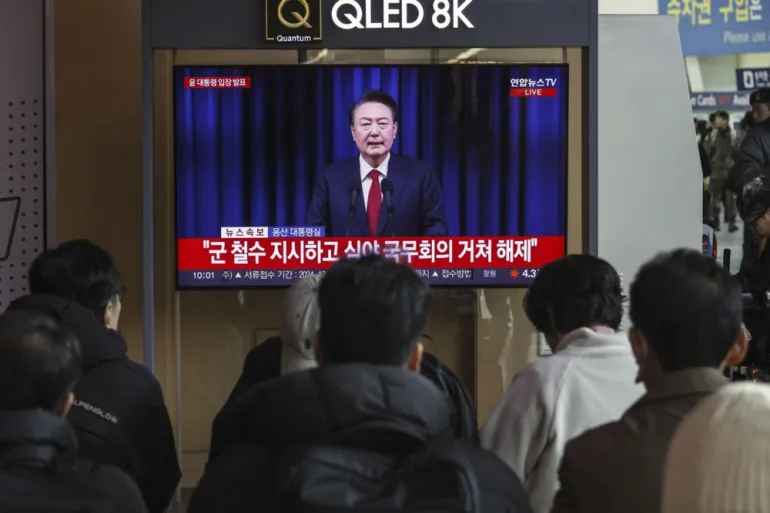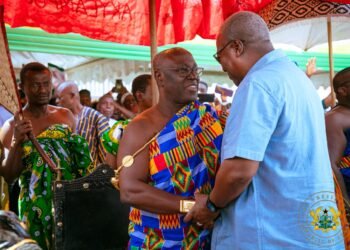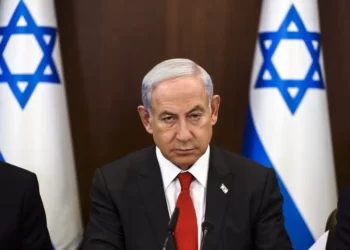South Korean President, Yoon Suk-yeol has made a public apology for his attempt to impose martial law.
However, he did not resign, defying intense pressure to step down – even from some in his own party.
In a televised address to the nation on Saturday, December 7, 2024, Yoon said that he would not seek to avoid legal and political responsibility for his decision to invoke the emergency measure of martial law for the first time in South Korea since 1980.
He said that his decision was born of “desperation.”
Yoon said, “I am very sorry and would like to sincerely apologise to the people who were shocked,” promising there would be no second attempt.
“I leave it up to my party to take steps to stabilise the political situation in the future, including the issue of my term in office.”
Yoon Suk-yeol
He bowed after he finished his brief remarks.
The speech was the embattled leader’s first public appearance since he rescinded the martial law order early on Wednesday, just six hours after it was declared and after parliament defied an armed military raid and police cordons to vote against the decree, which forced the President to revoke his order.
Many in South Korea are still reeling from the President’s shock announcement late on Tuesday night, which gave the military sweeping emergency powers in order to combat unspecified threats from “North Korean communist forces”, and “to eradicate the shameless pro-North antistate forces.”
Yoon said that martial law was necessary, accusing opposition members in the National Assembly of launching an unprecedented number of impeachment efforts against members of his administration, effectively paralysing key operations of government, and of handling the budget in a way that undermined the fundamental functions of government, including public safety.
Yoon’s move plunged Asia’s fourth-largest economy and key US military ally into its greatest political crisis in decades, and threatened to shatter South Korea’s reputation as a democratic success story.
Impeachment Vote Looms
Yoon’s apology came as impeachment vote looms.
Lawmakers are scheduled to vote at 5pm local time (08:00 GMT) on the main opposition Democratic Party’s motion to impeach Yoon.
Opposition leaders said if the motion fails, they plan to revisit it again on Wednesday.
Also, Prosecutors, the police and the Corruption Investigation Office for High-ranking Officials have all launched probes into Yoon and senior officials involved in the martial law decree, seeking to pursue charges of insurrection and abuse of power, among others.
Meanwhile, Han Dong-hoon, leader of Yoon’s People Power Party (PPP), said after Yoon’s address that the President was no longer in a position to carry out his public duties and his resignation was now unavoidable.
On Friday, Han had said Yoon was a danger to the country and needed to be removed from power.
Early on Saturday, Han met with the country’s Prime Minister, Han Duck-soo to discuss the crisis.
Prime Minister Han Deok-soo has canceled the official schedule and has been closely monitoring the situation since the schedule for the impeachment vote of President Yoon was set.
Even if the impeachment bill is rejected, the government seems to be focusing on preparing countermeasures to minimize instability in state affairs, as disruptions in state affairs are inevitable for the time being.
Under the constitution, if Yoon resigns or is impeached then the Prime Minister, who was appointed by Yoon, becomes South Korea’s acting President.
If Yoon leaves office before his single five-year term ends in May 2027, the constitution requires a presidential election to be held within 60 days upon his departure.
READ ALSO: Japan Eyes Investment in Ghana’s Energy Transmission Sector




















